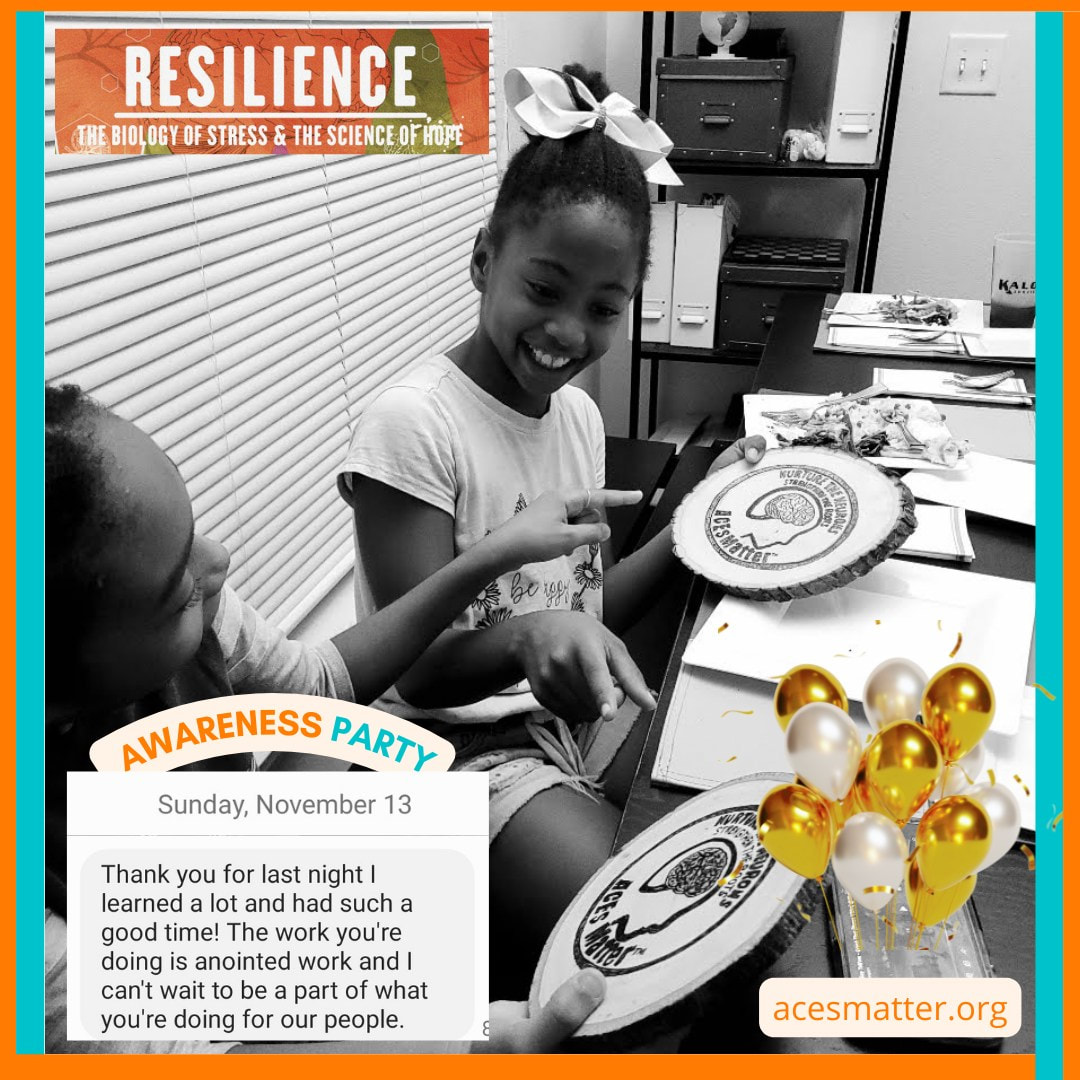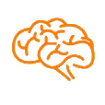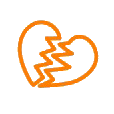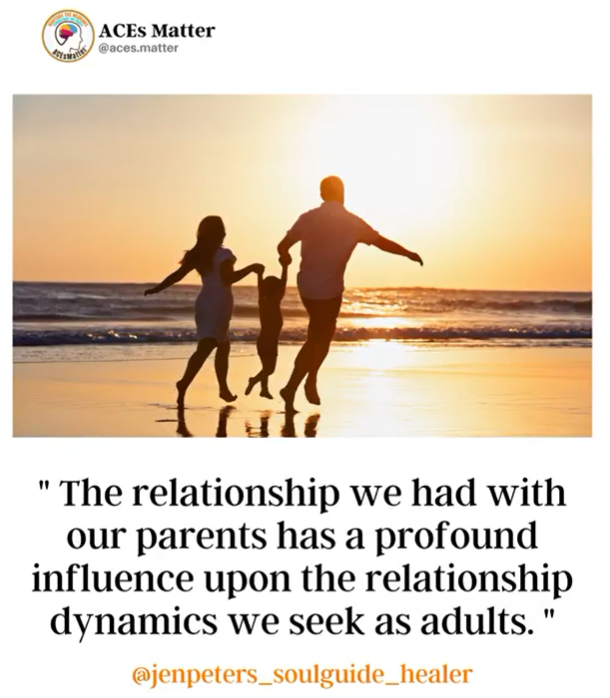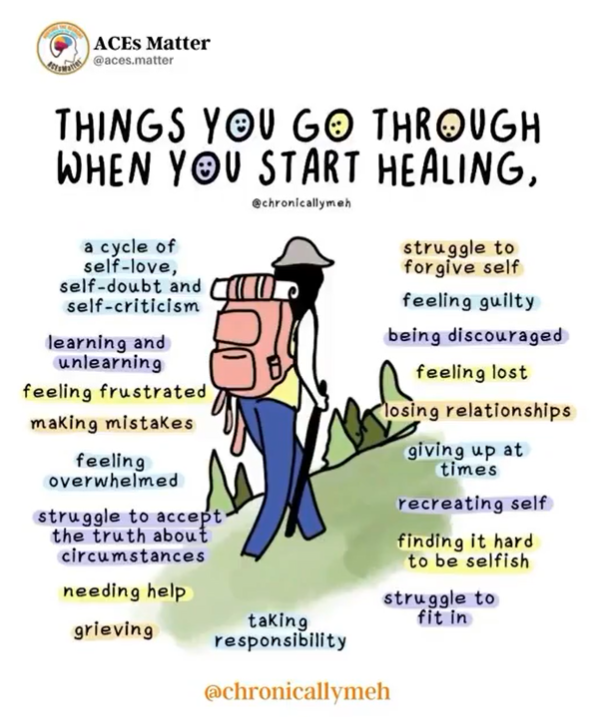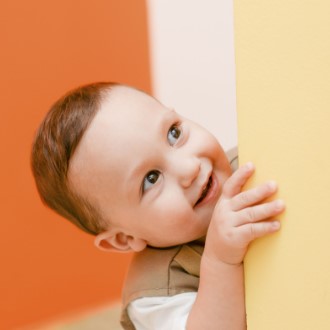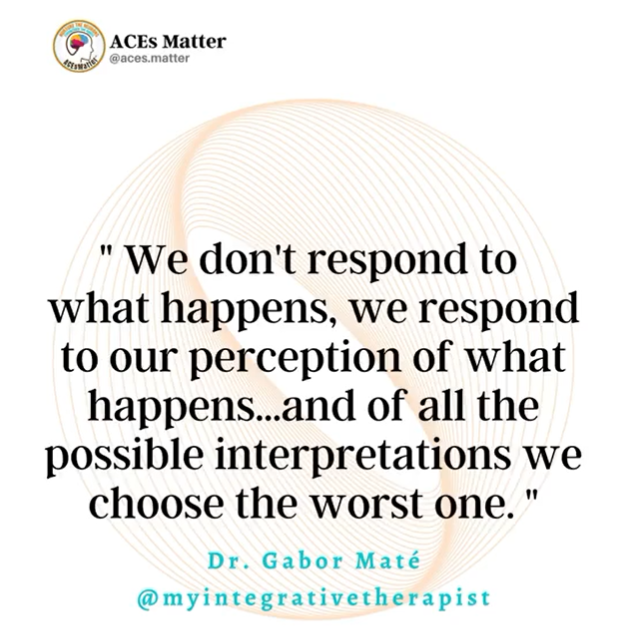ACES MATTER is dedicated to improving the understanding of mental and physical health disparities that start with Adverse Childhood Experiences, ACEs for short.
Our Purpose: To provide high quality mental, physical, and spiritual wellness education to first-generation college students, first generation trauma chain-breakers, and early career individuals.
About ACEs Matter
Who We Are & What We Do
|
We do not offer direct counseling or medically necessary interventions, but we do however have a list of vetted resources that we show our clients how to access.
Donations allow us to cover the expenses when deemed necessary, but our ultimate goal is to teach people how to *fish* for themselves, even if that means holding their hands for an extended period of time. |
Anyone that has not learned about the causes and consequences of Adverse Childhood Experiences (ACEs) runs the risk of continuing the cycle of generational trauma and retraumatizing adults or children who’ve been exposed to ACEs.
ACEs Matter is a grassroots organization dedicated to preventing ACEs, intervening when they occur, and educating people about them. We provide access to high quality training, support, and expert services through donation-based webinars, with the goal of creating healthier adults and sustainable communities. ACEs Matter is an integrated training approach for effectively addressing toxic stressors and adverse childhood experiences. Their threefold approach focuses on prevention, intervention, and education. ACEs Matter also works to ensure children have happy and safe childhoods so they can grow up feeling loved and cared for. The board members are dedicated to providing culturally specific education geared towards healing the mind, body, and soul for those living in under-resourced communities. |
We Educate &Train...
We share our knowledge across the country with communities, schools, childcare centers, churches, local organizations, medical establishments, and businesses that are located in or around at-risk communities.
We are specifically seeking to influence minority millennials (1981-1996), gen Z’s (born between 1997-2012), and Generation Alpha (2012 + beyond) who had disadvantaged beginnings.
We are specifically seeking to influence minority millennials (1981-1996), gen Z’s (born between 1997-2012), and Generation Alpha (2012 + beyond) who had disadvantaged beginnings.
Podcast Communities
Under Resourced Zip Codes
Title 1 Schools
Childcare Centers
Churches
Government Organizations
Local Organizations
Medical Establishments
Minority Owned & Charitable Businesses
Where We Are Going
|
A world without ACEs would be a world filled with compassionate people.
A world with 1 in 6 people having four or more ACEs is a world filled with people who need to meet a compassionate person. ~ Cendie Stanford - Founder & President |
Raising Mentally and Physical Healthy Adults
People are the solution, especially adults. By 2030, we will have facilitated more than 200 complimentary ACEs information conversations. I believe this mission will prove the following four things:
We are eager to be of service to individuals affected by ACEs. The end-game: No more crappy childhoods. |
Our Primary Customers:
Individual donors, business owners, and philanthropists are vital to our success. When community businesses and individuals support our efforts financially or through in-kind donations, their cities ultimately benefit.
To contribute to the prevention of ACEs is to contribute to the reduction of:
To contribute to ACEs means to sleep well at night knowing that our sons and daughters will likely meet someone that has their mental, physical, and spiritual health in check. This is a money-back guaranteed social investment.
To contribute to the prevention of ACEs is to contribute to the reduction of:
- Major and minor crimes
- Incarceration
- Health-care cost
- Alcoholism/Substance Abuse
- Domestic Violence
- Childhood abuse and neglect
- Mental illnesses
- Divorce rates
- Homelessness
- Broken hearts
To contribute to ACEs means to sleep well at night knowing that our sons and daughters will likely meet someone that has their mental, physical, and spiritual health in check. This is a money-back guaranteed social investment.
Adverse Childhood Experiences
- A 1998 intensive research study led to a 10 question survey about your childhood experiences
- Responses show a correlation between the ACE score and later risk in life
- Correlation does not automatically equal causation, but the likelihood increases
- ACEs rarely happen in isolation
- Trauma at any age can cause Post Traumatic Stress Disorder (PTSD)
- Our brain never turns off and it's always working trying to maintain the worldview that was created in our early years
What is an ACE Score?
|
Your ACE score can help provide information about potential risks later in life.
A 10 question survey about childhood experiences, derived from a 1998 research study.
ACEs rarely occur in isolation and multiple ACEs increases potential health and behavior risk factors.
Events you witnessed
Divorce, Abandonment, Death
Family/Domestic Violence
Drug or Substance Abuse
Family Member or Parental Mental Illness
Parental Criminal Behavior or Jail/Prison Other toxic stress inducing events
Natural/Manmade Disaster
Medical Trauma
Community Crime & Violence
Being Bullied
War Terrorism
Homeless/Foster Care/ Psychiatric Care |
Vertical Divider
|
Our bodies and brain store trauma until we find healthy ways to regulate, rehabilitate, cope and heal.
Your ACE score increases the likelihood of potential risks, but its not an absolute.
Experiencing trauma at any age can lead to Post Traumatic Disorder or PTSD.
Events that happened to you
Emotional Abuse
Sexual Abuse
Physical Abuse
Emotional Neglect
Physical Neglect |
What is PCE Score?
|
PCEs stands for Positive Childhood Experiences, and they help buffer against the effects of traumatic experiences.
|
Having emotional supports as a child made traumatic experiences less impactful on individuals later in life.
|
Children who have PCEs become adults who are comfortable seeking emotional and mental health support.
|
Positive Childhood Experiences
The PCE study was conducted by Johns Hopkins University in 2019 and is the opposite of ACEs study.
The researchers concluded that 7 childhood experiences can be statistically linked to good mental health and relationships in adulthood.
PCEs help protect kids from the adverse effects of traumatic experiences.
You had the ability to talk with family about feelings. |
You had at least two non-parent adults who genuinely cared. |
You had a sense that family was supportive during difficult times. |
You felt safe and protected by an adult in the home.
You experienced joy participating in community traditions. |
You felt supported by friends. |
You felt a sense of belonging in high school. |

